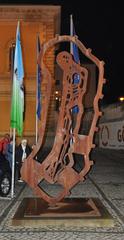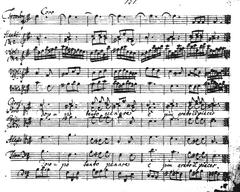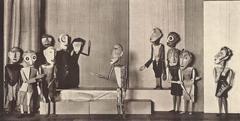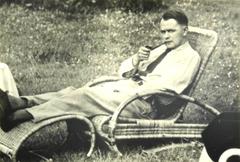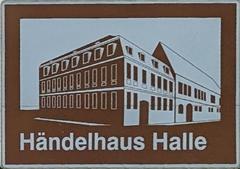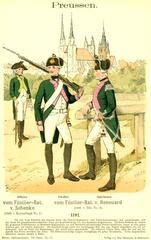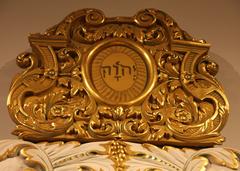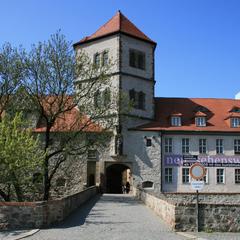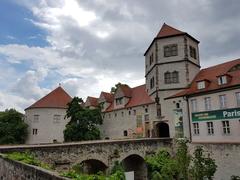
Halle Opera House: Visiting Hours, Tickets, and Complete Guide to Halle Historical Sites
Date: 14/06/2025
Introduction
The Halle Opera House (Opernhaus Halle) stands at the heart of Halle (Saale), Germany, as a beacon of cultural heritage, architectural splendor, and musical innovation. From its neo-Baroque origins through wartime devastation and postwar reconstruction, the opera house reflects Halle’s resilience and ongoing dedication to the performing arts. As the birthplace of George Frideric Handel, Halle’s musical pedigree is world-renowned, and the opera house plays a central role in upholding and celebrating this legacy (Germany Travel). This guide offers detailed, up-to-date information on visiting hours, ticketing, accessibility, guided tours, and nearby historical sites, ensuring you have everything you need for a memorable cultural journey in Halle.
Table of Contents
- Historical Overview
- Architectural Highlights
- Cultural Role and Programming
- Practical Visitor Information
- Guided Tours and Special Events
- Nearby Halle Historical Sites
- Frequently Asked Questions (FAQ)
- Tips for an Enriching Visit
- Conclusion
- Sources
Historical Overview
Origins and Early Development
Halle has a storied cultural history, with its first documentation dating back to 806 AD. It blossomed as a center for commerce, learning, and especially music, being the birthplace of George Frideric Handel in 1685 (Germany Travel). Opera thrived here from the Baroque period, fostered by the establishment of the University of Halle and the city’s vibrant intellectual scene (Wikipedia).
Construction and Wartime History
The current Halle Opera House was inaugurated in 1886, designed in the popular neo-Baroque style by architect Heinrich Seeling (Parametric Architecture). The building was conceived as a testament to Halle’s economic and cultural ascent. However, in 1945, the theatre suffered extensive damage during World War II (Wikipedia). Postwar reconstruction began in the late 1940s, preserving the ornate façade but modernizing the interior. The opera house reopened in 1951, symbolizing both cultural resilience and the city’s renewal.
Renovations and Modern Enhancements
Subsequent renovations, especially in the late 20th and early 21st centuries, focused on further modernizing stage technology, improving acoustics, and enhancing accessibility while restoring historic decorative elements (Parametric Architecture; Outdooractive).
Architectural Highlights
- Façade and Exterior: The opera house’s neo-Baroque exterior features symmetrical design, decorative columns, and stately entrances. Rebuilt after wartime damage, the façade blends 19th-century grandeur with mid-20th-century sensibility (Outdooractive; verliebtinhalle.de).
- Grand Foyer: Inside, the foyer boasts high ceilings, marble floors, and elegant staircases. Chandeliers and period furnishings evoke both historical elegance and modern comfort.
- Auditorium: The horseshoe-shaped auditorium seats around 1,000 and is renowned for its acoustics and sightlines. The proscenium stage and orchestra pit allow for large, ambitious productions (Places and Things To Do).
- Artistic Details: Decorative plasterwork, frescoes, and a rich palette of deep reds and golds create an atmosphere of opulence and warmth.
Cultural Role and Programming
The Halle Opera House is home to the Oper Halle company and hosts a dynamic range of performances, from classic opera and ballet to contemporary works and musicals. It serves as the main stage for the internationally acclaimed Handel Festival each June, celebrating Halle’s most famous son and attracting leading artists and audiences from around the world (Hello Mondo; Bargain Travel Europe; haendelhaus.de).
Resident ensembles such as the State Orchestra and Ballet Rossa regularly perform, and the venue frequently premieres new interpretations of classic works. The opera house is also a hub for community engagement, offering educational workshops, youth projects, and academic conferences (visiteurope.com).
Practical Visitor Information
Visiting Hours
- Box Office: Open Monday to Saturday, 10:00 AM to 6:00 PM; extended hours on performance days (buehnen-halle.de).
- Building Access: Doors open 30–60 minutes before each performance; guided tours are available by advance booking on select days.
Ticketing and Pricing
- Purchasing: Buy tickets online via the official website, at the box office, or through the city’s tourist information center (verliebtinhalle.de).
- Pricing: Tickets range from €10 to €70 depending on seating and event. Discounts are available for students, seniors, and groups. Special packages and festival passes may be offered during events like the Handel Festival.
- Booking Advice: Book early for popular performances, especially during festival season (Quartz Mountain).
Accessibility
- Physical Access: Ramps, elevators, and accessible restrooms are provided. Wheelchair spaces and assistance can be arranged—contact the box office in advance (Outdooractive).
- Assistance: Hearing devices and performances with subtitles in multiple languages are available; staff can assist visitors in English.
Getting There
- Address: Universitätsring 24, 06108 Halle (Saale).
- Public Transport: The opera house is centrally located, with tram and bus stops nearby. Parking garages are available in the vicinity (Haendelhaus).
- Nearby Amenities: Foyers, cloakrooms, and refreshment bars are available for visitors; pre-ordering drinks for the interval is customary (Halle Concerts FAQ).
Guided Tours and Special Events
Guided tours provide exclusive access to the opera house’s backstage, auditorium, and historical exhibits. These tours are scheduled on select non-performance days and should be booked in advance through the opera house or tourist information center. The opera house also hosts special events, including educational workshops, gala evenings, and open rehearsals (Outdooractive).
Nearby Halle Historical Sites
The opera house’s central location makes it easy to explore Halle’s other historical gems:
- Market Church of Our Dear Lady: Where Handel was baptized.
- Handel House Museum: Dedicated to the composer’s life and works (Bargain Travel Europe).
- Moritzburg Castle: A Renaissance fortress housing the State Art Museum.
- Francke Foundations: An 18th-century complex of educational and charitable institutions.
- Saale River Promenade: Perfect for scenic walks and riverside dining.
Combine your opera house visit with these attractions for a fuller experience of Halle’s rich heritage (Trek Zone).
Frequently Asked Questions (FAQ)
What are the Halle Opera House visiting hours?
Box office: 10:00 AM–6:00 PM, Monday–Saturday. Building opens 30–60 minutes before performances.
How can I buy tickets?
Purchase online, at the box office, or via the tourist information center (buehnen-halle.de).
Are discounts available?
Yes, for students, seniors, and groups. Festival passes may be available.
Is the opera house wheelchair accessible?
Yes, with designated seating and accessible facilities.
Are guided tours offered?
Yes, on select days with advance booking.
Can I take photographs inside?
Photography is allowed in public areas during tours but not during performances.
Are English supertitles available?
Most supertitles are in German; check in advance and consider reading a synopsis if you’re not fluent.
Tips for an Enriching Visit
- Book early for popular shows and festivals (Quartz Mountain).
- Arrive 30 minutes before curtain to enjoy the ambiance and settle in.
- Dress smart-casual or semi-formal; gala evenings may call for more formal attire.
- Explore nearby attractions for a full day of culture.
- Respect performance etiquette: silence your phone, no photos during shows, and follow audience cues for applause.
- Check the “Audio guide Halle” app for city and opera house information (Audio Guide Halle).
Conclusion
The Halle Opera House is much more than a venue—it is a living symbol of Halle’s artistic spirit, resilience, and cultural prominence. Whether you’re drawn by world-class opera, historic architecture, or the vibrant festival scene, your visit promises to be both inspiring and memorable. Plan ahead, embrace the city’s rich heritage, and immerse yourself in the unique charm of Halle’s performing arts.
For real-time updates, performance schedules, and tickets, visit the official website, and consider downloading the Audiala app. Share your experience on social media and connect with fellow travelers to make the most of your journey through Halle’s cultural landscape.
Sources
- Germany Travel
- Outdooractive
- verliebtinhalle.de
- Quartz Mountain
- Wikipedia
- Handel Festival page
- Bargain Travel Europe
- haendelhaus.de
- buehnen-halle.de
- Places and Things To Do
- Trek Zone
- Audio Guide Halle
- Halle Concerts FAQ

